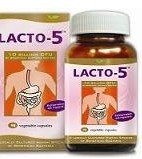
Picture credit: http://www.lowdensitylifestyle.com
Those who engaged in low-volume exercise had lower death rates than inactive people regardless of age, gender, health status, tobacco use, alcohol consumption or cardiovascular disease risk.
Health benefits of physical activity found to begin before people reach the half-hour standard
Taiwanese who exercise for 15 minutes a day, or 92 minutes per week, extended their expected lifespan by three years compared to people who are inactive, according to a study published in the August 16, 2011 online edition of The Lancet.
The authors reported that exercising at very light levels reduced deaths from any cause by 14 percent. The benefits appear to be significant even without reaching the WHO recommended 150 minutes per week.
They found that a person’s risk of death from any cause decreased by 4 percent for every additional 15 minutes of exercise up to 100 minutes a day over the course of the study. Those exercising for 30 minutes daily added about four years to life expectancy and these benefits were applicable to all age groups, both sexes and those with cardiovascular disease risk.
The prospective observational study involved 416,175 Taiwanese who participated in a standard medical screening program run by MJ Health Management Institution between 1996 and 2008. Participants were followed for an average of eight years.
For the exercise study, participants completed a questionnaire covering their medical history and lifestyle information. They characterized their weekly physical activity for the previous month by intensity – light (walking), moderate (brisk walking), vigorous (jogging) or high vigorous (running) – and time.
To account for occupational effects, participants also characterized their physical activity at work, ranging from sedentary to hard physical labor.
Those who reported less than one hour a week of leisure time physical activity were classified as inactive – 54 percent of all participants. Others were classified as low, medium, high or very high based on the duration and intensity of their exercise.
Researchers calculated mortality risk and life expectancy for each group.
Thirteen other variables were analyzed: age, sex, education level, physical labor at work, smoking, alcohol use, fasting blood sugar, systolic blood pressure, total cholesterol, body mass index, diabetes, hypertension and history of cancer.
Those who engaged in low-volume exercise had lower death rates than inactive people regardless of age, gender, health status, tobacco use, alcohol consumption or cardiovascular disease risk.
The researchers note that the World Health Organization and the U.S. Centers for Disease Control and Prevention recommend at least 150 minutes of moderate-intensity exercise per week. A third of U.S. adults meet that guideline; about 20 percent of adults in China, Japan or Taiwan meet it.
“A recommendation of 15 minutes of daily exercise should be promoted to East Asian populations,” the authors note.
“These findings can stimulate people to exercise as much as they can and to not be frustrated that they can't reach the 30 minute per day guideline.”
This is the first collaboration between Wu, Wen and the MJ Health Group, a major health screening company with more than 600,000 participants in its health database. They have formed the Asian Health Screening Cohort to conduct major research projects. Wu provides scientific expertise with Wen, who also is based at China Medical University Hospital, while MJ Health Group contributes patient epidemiological and clinical data as well as a biobank of tissue samples.
Two other ongoing collaborative projects include development of a liver cancer risk prediction model and a study of telomere length, genetic variation and cancer risk. The second project is funded by an MD Anderson Sister Institute Network Fund Grant. MD Anderson and China Medical University Hospital have a sister institution agreement.
The exercise project was funded by the Taiwan Department of Health Clinical Trial and Research Center of Excellence and the Taiwan National Health Research Institutes.
Senior author Xifeng Wu is professor and chair of The University of Texas MD Anderson Cancer Center Department of Epidemiology. Co-lead authors are Chi-Pang Wen hails from the National Health Research Institutes and Jackson Pui Man Wai of the Institute of Sport Science, National Taiwan Sport University. The other participants are Min Kuang Tsai, Yi Chen Yang and Hui Ting Chan of the Institute of Population Science, Taiwan National Health Research Institutes; Ting Yuan David Cheng, University of Washington Department of Epidemiology; Meng-Chih Lee, Institute of Medicine and Department of Family and Community Medicine, Chung Shan Medical University and Hospital; Chwen Keng Tsao of MJ Health Management Insitution; and Shan Pou Tsai, The University of Texas School of Public Health at Houston. Tsai and Yang also are with the China Medical University Hospital.
The above story is reprinted (with editorial adaptations by The Zestzfulness Team) from materials provided by University of Texas M. D. Anderson Cancer Center
Journal Reference:
Chi Pang Wen, Jackson Pui Man Wai, Min Kuang Tsai, Yi Chen Yang, Ting Yuan David Cheng, Meng-Chih Lee, Hui Ting Chan, Chwen Keng Tsao, Shan Pou Tsai, Xifeng Wu. Minimum amount of physical activity for reduced mortality and extended life expectancy: a prospective cohort study. The Lancet, 2011; DOI: 10.1016/S0140-6736(11)60749-6















